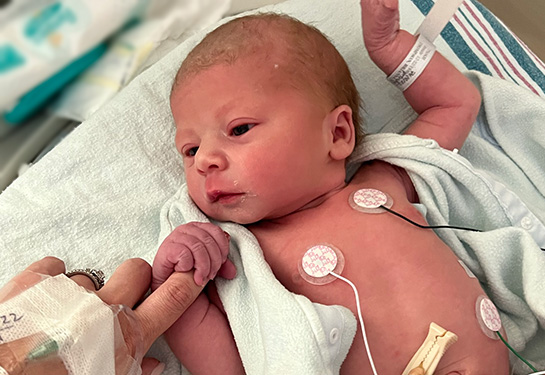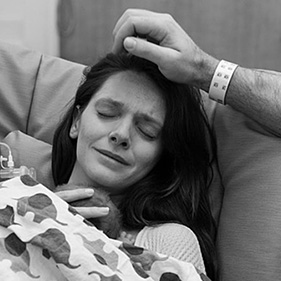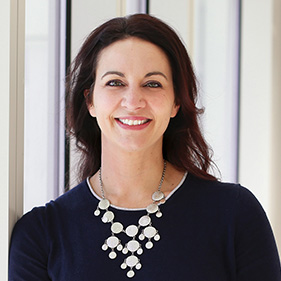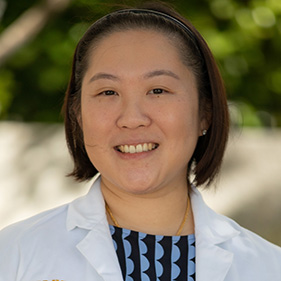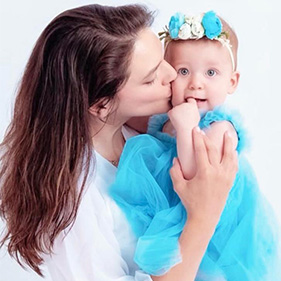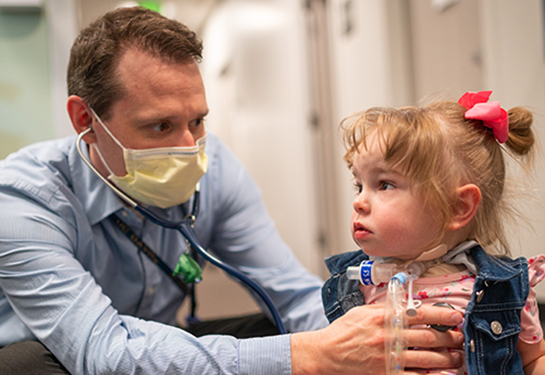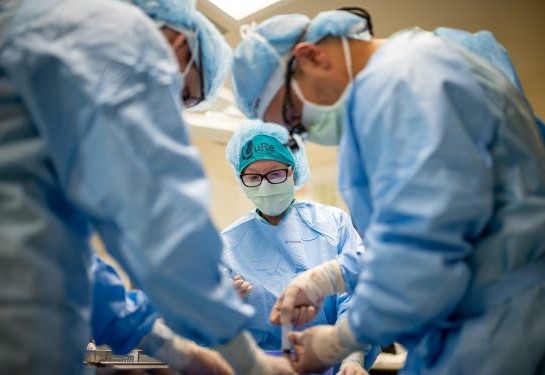One-in-a-million pregnancy brings woman to UC Davis Health
Her newborn son died of a rare disorder. Brianna Thompson was going to do everything she could to save her next child.
For Brianna and Spencer Thompson of Auburn, the excitement was overwhelming. Brianna’s pregnancy was a wonderfully normal experience. The couple was excited about their son’s arrival.
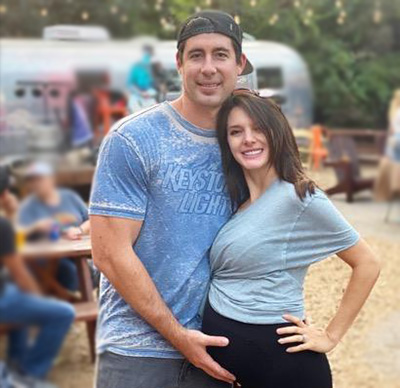
“It was the cookie cutter, ideal pregnancy,” Brianna Thompson remembers.
But at 33 weeks, Thompson noticed decreased movement in her belly. She sensed there was a problem. A visit to the hospital led to an emergency C-section where doctors discovered her son Finn had severe liver damage.
“It all happened so fast, but at the same time, it was slow motion in my mind,” Thompson said. “I had no idea what was going on. It didn’t feel real.”
Finn was transferred to several different hospitals for increasingly critical care, but died five days later.
“It was traumatic,” Thompson said. “We were living a nightmare and had no answers.”
It was traumatic. We were living a nightmare and had no answers.”—Brianna Thompson, Finn and Odette’s mom
A one in a million diagnosis
Autopsy results revealed that Finn died of a rare disorder called neonatal hemochromatosis (NH). NH is caused by severe fetal liver disease associated with the accumulation of excess iron in the mother’s liver and other organs, which is passed on to the developing baby.
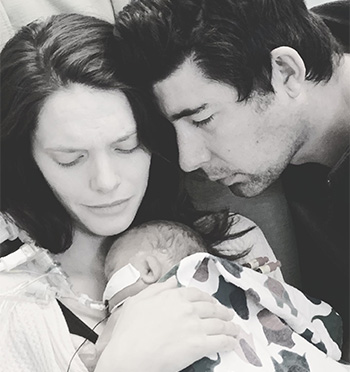
Severe cases of NH can result in stillbirth, while NH babies like Finn often face life-threatening complications such as liver failure. It is estimated that fewer than one in a million pregnancies worldwide results in neonatal hemochromatosis.
“It was hard to process,” Thompson said. “He was a perfectly healthy baby until he wasn’t.”
To complicate matters, NH cannot be detected during pregnancy, and when a person has an NH pregnancy, 90 percent of subsequent pregnancies are also likely to result in the disorder. Thompson feared her chance of having a healthy, living child were over.
“They told me that I would likely face the same outcome if we tried to have another baby,” Thompson said, “if I didn’t get treatment, that is. I was so grateful to know we had options.”
The Thompsons were referred to UC Davis Health to explore next steps.
A chance for a healthy child
“Neonatal hemochromatosis is an extremely rare condition, even among fetal and pregnancy specialized centers,” said UC Davis pediatric gastroenterologist, Daphne Say. “We needed to take a comprehensive, multidisciplinary approach to Brianna’s care. I knew UC Davis Children’s Hospital had the resources she needed.”
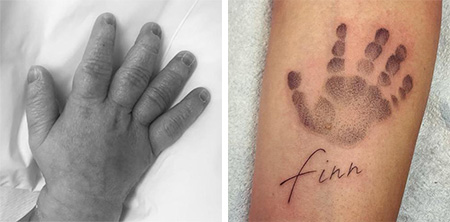
Those resources included intravenous immunoglobulin (IVIG) infusions. UC Davis Children’s Hospital is one of the few that offers IVIG. It’s not fully understood how these high-dose treatments work, but it’s believed that they may dilute or block maternal antibodies from damaging the fetal liver cells. With IVIG infusions started early in pregnancy, there is a nearly 100% chance of a healthy birth.
UC Davis maternal-fetal medicine specialist Véronique Taché specializes in high-risk pregnancies and met with the Thompsons.
“When I met Brianna, she had just lost Finn two months prior and was coming in to plan another pregnancy during a preconceptual counseling appointment,” Taché said. “She had done her homework and already knew there would be a very high chance of recurrence without treatment.”
At the end of that first visit, Taché had a plan in place that included use of IVIG to prevent a recurrence, involvement of prenatal genetic counselors, as well as establishing with Pediatric GI to ensure everything was in place once she got pregnant.
“After we met with Dr. Taché and Dr. Say, we knew we were in good hands,” Thompson recalled. “We felt like we were in the right place.”
When I met Brianna, she had just lost Finn two months prior. She had done her homework and already knew there would be a very high chance of recurrence without treatment.”—Véronique Taché, UC Davis maternal-fetal medicine specialist
"I was impressed by Brianna from the start,” Say said. “I found her to be an incredibly thoughtful collaborator as we developed a game plan to ensure her future safe and successful pregnancy.”
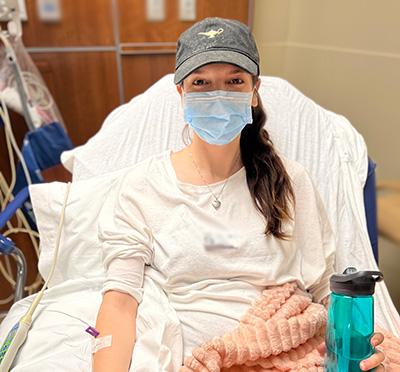
Part of the plan was a consult with the pediatric liver team at Lurie Children’s Hospital of Chicago and Northwestern University School of Medicine, who developed the treatment for neonatal hemochromatosis. Brianna’s team used those guidelines to inform Brianna’s IVIG therapy during her pregnancy.
“Dr. Say was so wonderful. Her compassion was like nothing we had experienced before,” Thompson said. “She knew about my first experience and went the extra mile, contacting the team that pioneered the IVIG treatments.”
Months and months before Brianna was pregnant with her daughter, she already felt secure and confident that this time would be different.
“The last thing I ever wanted was to experience what we went through with Finn again,” Thompson said. “The team at UC Davis knew the specific path we needed to follow.”
Saving Odette
When Thompson was pregnant for the second time, she began IVIG treatments at 14 weeks at the Acute Infection Management (AIM) clinic at UC Davis. She had weekly appointments throughout her pregnancy, spending an average of six hours each session. Thompson says she felt better knowing she was being proactive in trying to prevent what happened to Finn.
“Going to AIM was actually something I came to look forward to,” Thompson said. “It was like visiting family. It felt safe.”
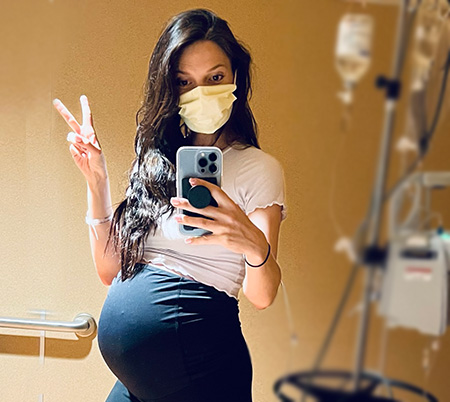
When Thompson got closer to her delivery date, she felt even more at home.
“We met the NICU team ahead of time. They already knew our unborn daughter’s name and our story,” Thompson said. “It was such a huge relief not to have to explain our unique and complicated situation over and over again.”
The team took the situation as seriously as Brianna did.
“Because it was such a different protocol than a lot of births, we appreciated how the whole team was hyperfocused,” Thompson said.
“From the time Brianna became pregnant, we tried to have everything lined up to allow for a controlled and uneventful delivery as possible,” Taché added.
That’s just what happened.
Saving lives … and lifetimes
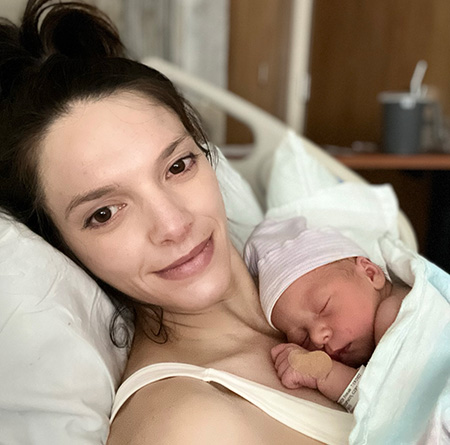
Odette Thompson was born at 38 weeks on July 19, 2022. The planned delivery couldn’t have gone more smoothly and thanks to labor and delivery nurse, Michelle Kuykendall, Brianna got through it.
“If we hadn’t already named Odette, we told Michelle we would have named our daughter after her,” Thompson remembered. “She was incredible, as was the rest of the delivery team.”
Brianna says UC Davis Children’s Hospital provided her with exactly what she had hoped for.
“I truly cannot express enough how grateful we are for UC Davis and how much I love every person I came into contact with who helped us through this,” Thompson said. “The pregnancy, the birth and everything after. It was a dream come true. Everything turned out perfectly. We don’t take that for granted.”
Odette is thriving, showing us her bright and determined personality at each visit. She has a healthy liver and is growing beautifully. The normalcy of it all is very much a miracle.”—Daphne Say, pediatric gastroenterologist
While some babies require IVIG treatments of their own, Odette did not.
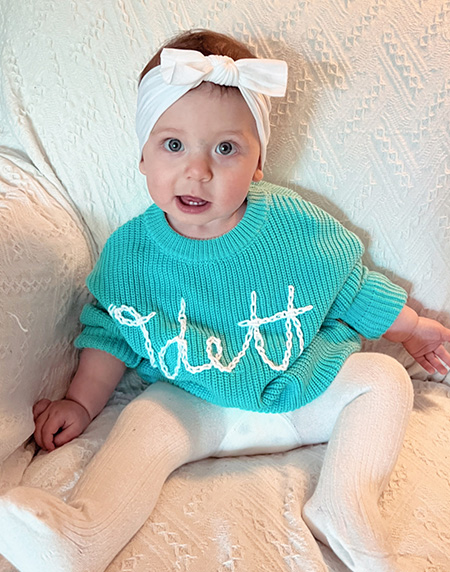
“I was away when Brianna delivered and remember checking in to see how her labor was progressing,” Taché recalled. “I was thrilled and relieved when I got the news.”
Now 1 year old, Odette is a healthy, outgoing, driven girl who her parents and her medical team are excited to see grow up.
“Odette is thriving, showing us her bright and determined personality at each visit,” Say said. “She has a healthy liver and is growing beautifully. The normalcy of it all is very much a miracle.”
“I can’t wait, and I can wait,” Thompson quipped about Odette growing up. “I think of Finn all the time when I watch Odette. Through him I found patience and appreciate every minute we have with her. To have her here with us is a gift.”
Thompson credits UC Davis Children’s Hospital with that gift. “I have the team, ‘our family,’ to thank for my daughter,” Thompson said. “The quality care, amazing medical staff. It makes us want to experience it again as we think about growing our family. Knowing we have UC Davis in our corner is such a comfort.”
“I truly cannot express enough how grateful we are for UC Davis and how much I love every person I came into contact with who helped us through this. The pregnancy, the birth and everything after. It was a dream come true. Everything turned out perfectly. We don’t take that for granted.”—Brianna Thompson

